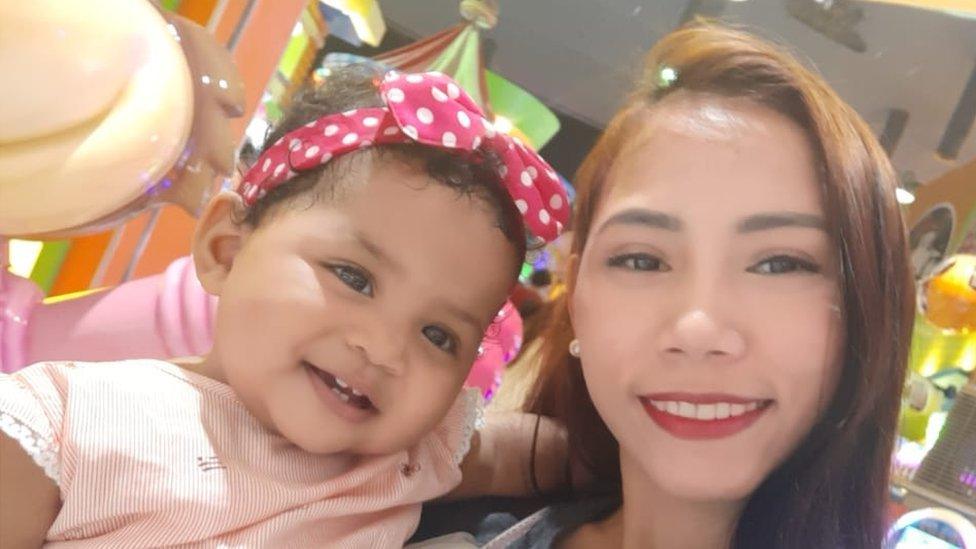Andrew Innes jailed for murdering Bennylyn and Jellica Burke
- Published
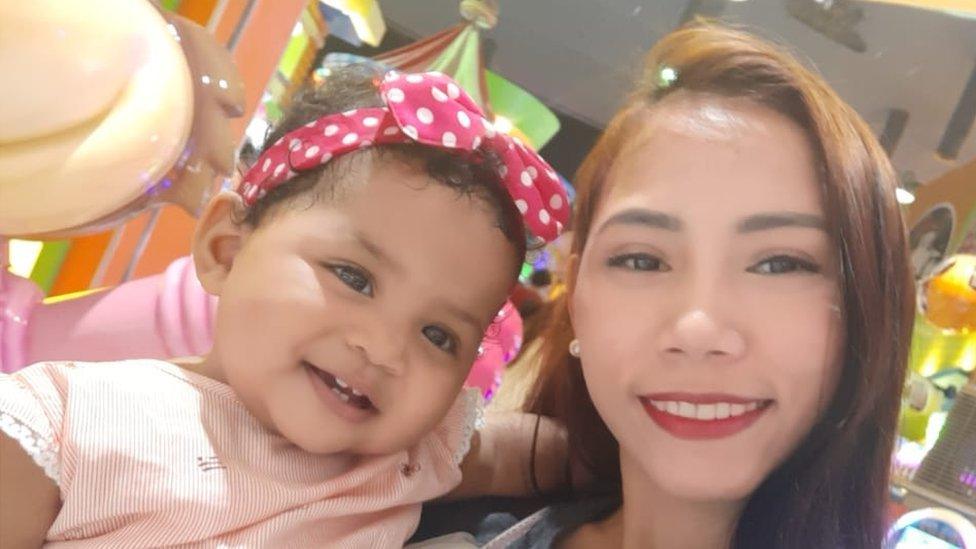
Bennylyn Burke and her daughter Jellica
A man has been jailed for at least 36 years for murdering a mother and her two-year-old girl then burying their bodies under his kitchen floor.
Andrew Innes, 52, stabbed and beat 25-year-old Bennylyn Burke to death with a hammer before strangling her daughter Jellica at his home in Dundee.
He had lured Bennylyn from Bristol to Dundee after targeting her through a dating website in February 2021.
Innes was found guilty of their murders after a five-day trial.
He was jailed for life and will have to serve a minimum of 36 years before he can apply for parole.
Bennylyn and Jellica's family said they would be "forever haunted" by what they described as "the worst cruelty we could ever imagine".
Judge Lord Beckett said the "difficult and harrowing" case was one of the worst crimes to have come before a Scottish court.
Innes had admitted killing Bennylyn and Jellica but denied murder, claiming that he had diminished responsibility.
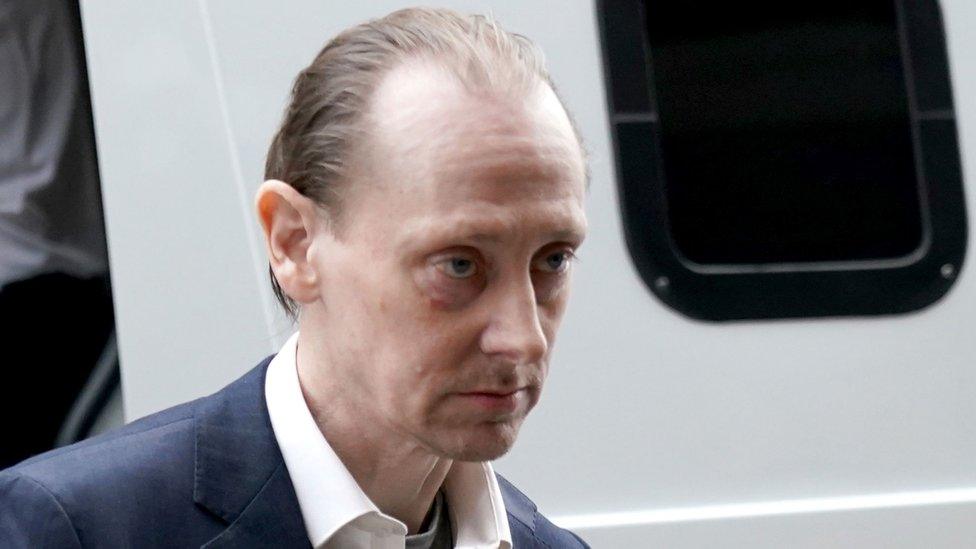
However, Lord Beckett told the jury that there had been no evidence during the trial to show that Innes had been suffering from mental impairment at the time of the killings.
As a result, he instructed them to find Innes guilty of both murders.
The jury also found him guilty of sexually assaulting Jellica, raping another child, and attempting to pervert the course of justice.
Members of Bennylyn and Jellica's family wept in court as the jury delivered their verdict after two hours and 26 minutes of deliberations.
The trial at the High Court in Edinburgh heard that Innes met Bennylyn, who had moved to the UK from the Philippines in 2019, on a dating site in February 2021.
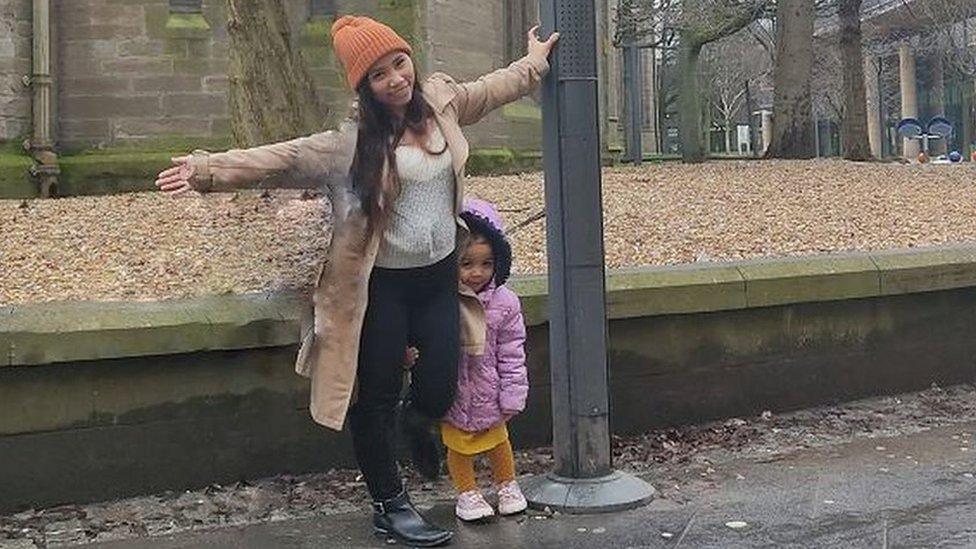
Bennylyn and Jellica pictured in Dundee
He drove Bennylyn and Jellica from their home in Bristol to Dundee on 18 February.
They were reported missing two weeks later.
On 5 March, police officers saw a car which had made a return trip from Dundee to Bristol during lockdown in the driveway of Innes' home in Troon Avenue.
Innes claimed that he had driven Bennylyn and Jellica to Glasgow and had left them with another man.
But after repeated questioning he admitted killing Bennylyn and told officers she was buried under the kitchen floor.
The court heard that Bennylyn had been stabbed and repeatedly hit on the head with a hammer. Jellica died of asphyxiation.
The moment Andrew Innes is arrested and led to a police van outside his home
Innes then put their bodies in rubble bags and concealed them in concrete beneath the kitchen floor.
Giving evidence, Innes said he had attacked Bennylyn with a hammer and a Samurai sword two days after she arrived in Dundee.
He claimed he had been "apocalyptically angry" because she resembled two women he felt had betrayed him, and blamed the attack on steroid-induced psychosis.
However, forensic psychologist Dr Gordon Cowan then told the court he did not believe Innes was impaired at the time of the killings.
He met Innes several times and prepared a report for the Crown about his condition.
That report stated: "There is no evidence to support a finding of diminished responsibility if he was to be found to have committed the offences."
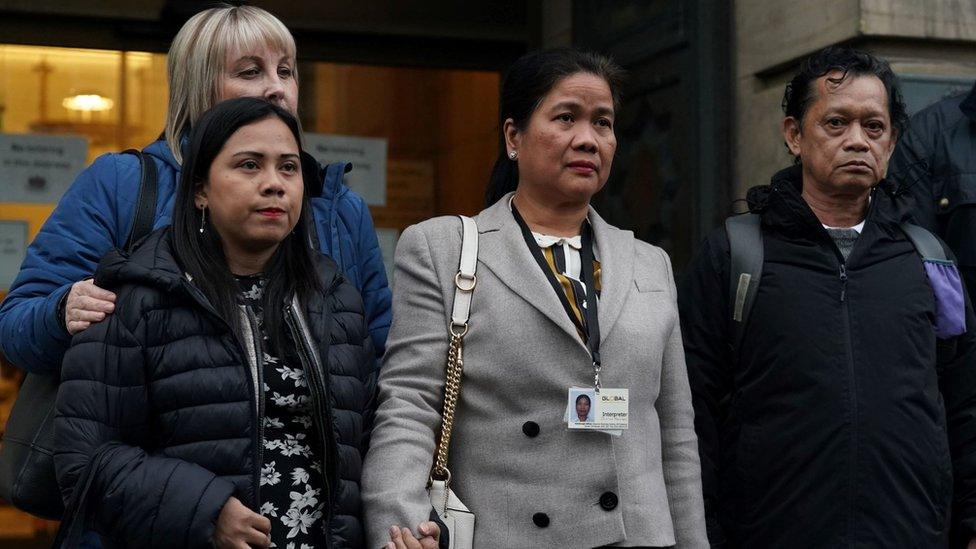
Bennylyn's sister Shela Aquino (left) and father Benedicto Aquino (right) outside the court
In a statement, Bennylyn and Jellica's family said: "A big part of our family has been torn from us. We shall never see Bennylyn and Jellica again."
They said Bennylyn was "the hope and light of our family".
"That light has been cruelly snuffed out," they added. "Bennylyn had bright ideas and big dreams. She bravely left home to seek a better future in a country far away.
"Instead, she found the worst cruelty we could ever imagine at the hands of someone she trusted. We shall be forever haunted by what happened to her in this far off place such a long way from us."
The family said they would not have the chance to know "our beloved Jellica" or see her grow up.
Andrew Innes guilty of murdering Bennylyn and Jellica Burke
"There is nothing that can restore Bennylyn and Jellica to us," they said.
"But the jury's guilty verdict for murder provides some comfort to our family and friends and brings justice for Bennylyn and Jellica."
Det Ch Insp Graham Smith, the lead officer on the case, said the murders had "shocked and appalled us all".
He said: "In almost 30 years of policing, the depravity shown by Andrew Innes was beyond anything I or my colleagues had witnessed before.
"His actions showed no regard for human life or the suffering and anguish he has brought to the loved ones."


There are occasions when a great deal is asked of juries. This was one of them.
The 15 men and women endured one of the most horrific cases to come before a Scottish court.
The full details of Andrew Innes' crimes are too monstrous to make public, but the jurors had to listen to it all.
By the time he spoke in his own defence, some of them couldn't bring themselves to look at him.
At one point they heard him casually state that a second girl in the house may well have died if the police had arrived 24 hours later.
The wave of revulsion that swept through the courtroom was palpable.
The jury's verdict was inevitable but they played their part in ensuring Innes will die behind bars.
In recognition of what was asked of them, they've been excused from jury service for the rest of their lives.

You can see more on this story on The Big Cases - Found Under the Floor on the BBC iPlayer.
Related topics
- Published3 February 2023
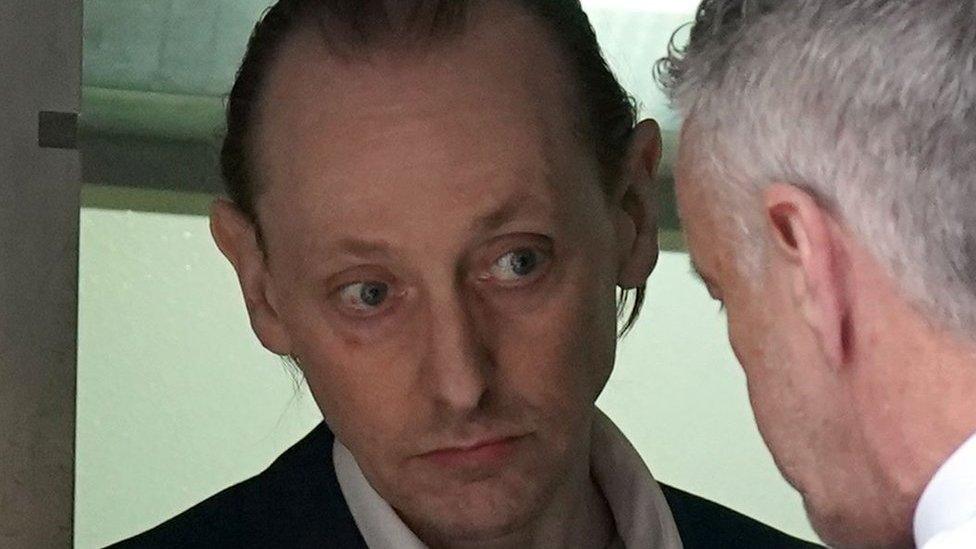
- Published2 February 2023
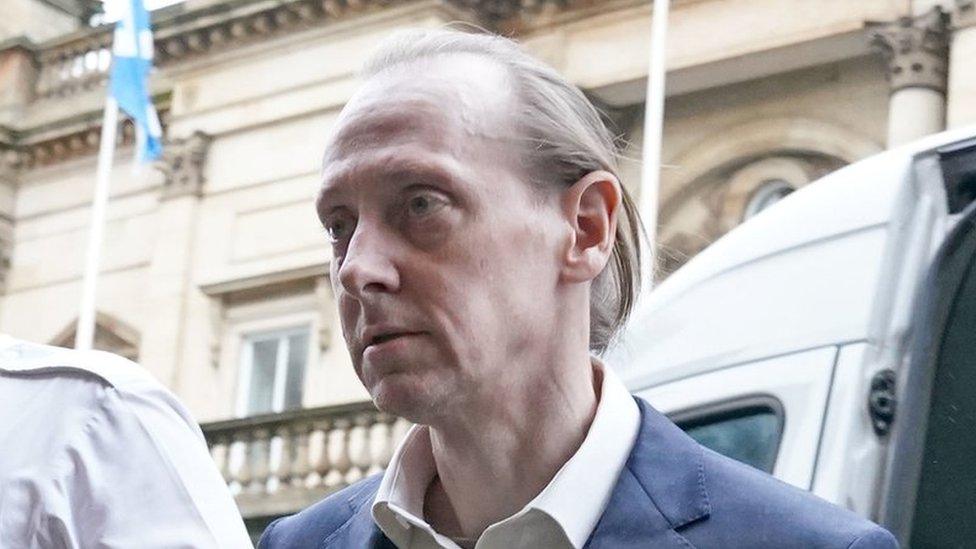
- Published31 January 2023
